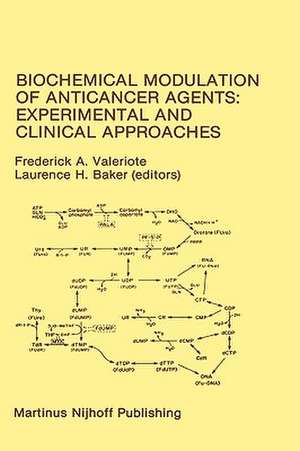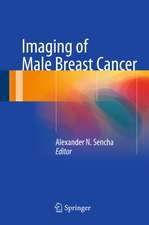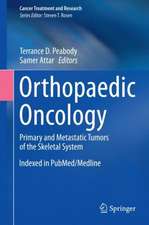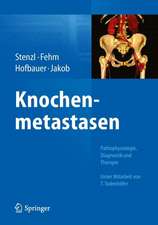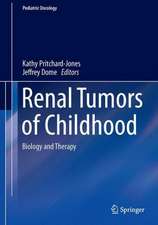Biochemical Modulation of Anticancer Agents: Experimental and Clinical Approaches: Proceedings of the 18th Annual Detroit Cancer Symposium Detroit, Michigan, USA — June 13–14, 1986: Developments in Oncology, cartea 47
Editat de Frederick A. Valeriote, L.O. Bakeren Limba Engleză Hardback – 31 oct 1986
| Toate formatele și edițiile | Preț | Express |
|---|---|---|
| Paperback (1) | 1098.48 lei 43-57 zile | |
| Springer Us – 30 sep 2011 | 1098.48 lei 43-57 zile | |
| Hardback (1) | 1105.40 lei 43-57 zile | |
| Springer Us – 31 oct 1986 | 1105.40 lei 43-57 zile |
Din seria Developments in Oncology
- 5%
 Preț: 360.70 lei
Preț: 360.70 lei - 5%
 Preț: 384.80 lei
Preț: 384.80 lei - 5%
 Preț: 345.71 lei
Preț: 345.71 lei - 5%
 Preț: 1096.98 lei
Preț: 1096.98 lei - 5%
 Preț: 360.86 lei
Preț: 360.86 lei - 5%
 Preț: 1125.88 lei
Preț: 1125.88 lei - 5%
 Preț: 3183.63 lei
Preț: 3183.63 lei - 5%
 Preț: 371.30 lei
Preț: 371.30 lei - 5%
 Preț: 374.57 lei
Preț: 374.57 lei - 5%
 Preț: 1417.91 lei
Preț: 1417.91 lei - 5%
 Preț: 375.34 lei
Preț: 375.34 lei - 5%
 Preț: 368.57 lei
Preț: 368.57 lei - 5%
 Preț: 1102.10 lei
Preț: 1102.10 lei - 5%
 Preț: 368.37 lei
Preț: 368.37 lei - 15%
 Preț: 604.56 lei
Preț: 604.56 lei - 5%
 Preț: 1425.76 lei
Preț: 1425.76 lei - 5%
 Preț: 1119.10 lei
Preț: 1119.10 lei - 5%
 Preț: 374.57 lei
Preț: 374.57 lei - 5%
 Preț: 1416.09 lei
Preț: 1416.09 lei - 5%
 Preț: 723.21 lei
Preț: 723.21 lei - 5%
 Preț: 713.33 lei
Preț: 713.33 lei - 5%
 Preț: 1424.16 lei
Preț: 1424.16 lei - 5%
 Preț: 718.65 lei
Preț: 718.65 lei - 5%
 Preț: 367.64 lei
Preț: 367.64 lei - 5%
 Preț: 1423.22 lei
Preț: 1423.22 lei - 5%
 Preț: 1097.71 lei
Preț: 1097.71 lei - 5%
 Preț: 3836.15 lei
Preț: 3836.15 lei - 5%
 Preț: 1100.64 lei
Preț: 1100.64 lei - 5%
 Preț: 1109.08 lei
Preț: 1109.08 lei - 5%
 Preț: 1419.39 lei
Preț: 1419.39 lei - 5%
 Preț: 1439.31 lei
Preț: 1439.31 lei - 5%
 Preț: 1114.71 lei
Preț: 1114.71 lei
Preț: 1105.40 lei
Preț vechi: 1163.58 lei
-5% Nou
Puncte Express: 1658
Preț estimativ în valută:
211.55€ • 220.04$ • 174.64£
211.55€ • 220.04$ • 174.64£
Carte tipărită la comandă
Livrare economică 14-28 aprilie
Preluare comenzi: 021 569.72.76
Specificații
ISBN-13: 9780898388275
ISBN-10: 0898388279
Pagini: 350
Ilustrații: XVIII, 350 p.
Dimensiuni: 155 x 235 x 22 mm
Greutate: 0.69 kg
Ediția:1986
Editura: Springer Us
Colecția Springer
Seria Developments in Oncology
Locul publicării:New York, NY, United States
ISBN-10: 0898388279
Pagini: 350
Ilustrații: XVIII, 350 p.
Dimensiuni: 155 x 235 x 22 mm
Greutate: 0.69 kg
Ediția:1986
Editura: Springer Us
Colecția Springer
Seria Developments in Oncology
Locul publicării:New York, NY, United States
Public țintă
ResearchCuprins
1. Biochemical Modulation of Anticancer Agents: An Overview.- 2. Biochemical Loci for Modulation of 5-Fluorouracil Activity.- 3. Biochemical Modulation of 5-Fluorouracil with Pyrimidines, Purines and their Nucleosides.- 4. Biochemical Modulation of Pyrimidine Pools for Enhancement of Antipyrimidine Cytotoxicity.- 5. Modulation of 5-Fluorouracil Cytotoxicity by Intracellular Pools of 5-Phosphoribosyl-1-Pyrophosphate (PRPP).- 6. Biochemical Rationale for Selectivity in the Modulation of Methotrexate Activity During Leucovorin Rescue or Early Nucleoside Protection.- 7. Clinical Aspects of FUra Metabolism Brian Leyland-Jones and.- 8. Metabolic Modulation of Ara-C.- 9. Enhancement of Alkylating Agent Cytotoxicity by Radiation Sensitizers.- 10. Modulation of Alkylating Agents by Radiation Sensitizers —Clinical Aspects.- 11. The Role of Cellular Glutathione in Response of Tumor Cells to Radiation and Drugs.- 12. Modulation of Intracellular Levels of Glutathione.- 13. Glutathione Depletion with Buthionine Sulfoximine: Potential Clinical Applications.- 14. Modification of Cell Sensitivity to Anticancer Agents by Polyenes.- 15. Modulation of the Efflux of Anticancer Agents.- 16. Problems in the Clinical Evaluation of Biochemical Modulation Therapy.
Recenzii
`As a whole this book is a useful reference in a relatively new field of cancer research that may eventually expand the scope of cancer chemotherapy.'
Adverse Drug Reaction, Vol. 7, No. 1, Spring 1988
Adverse Drug Reaction, Vol. 7, No. 1, Spring 1988
